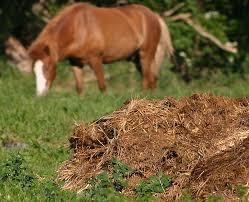How important is manure in agriculture?
2024-04-19
Manure plays a crucial role in agriculture for several reasons:

1. Nutrient Recycling: Manure is rich in nutrients like nitrogen, phosphorus, and potassium, which are essential for plant growth. By applying manure to fields, farmers can replenish soil nutrients, improving soil fertility and productivity. This reduces the need for synthetic fertilizers, which can be costly and have environmental consequences such as nutrient runoff and water pollution.
2. Organic Matter Addition: Manure contains organic matter that helps improve soil structure, moisture retention, and microbial activity. Incorporating manure into soils enhances soil health and resilience, making them more resistant to erosion, compaction, and nutrient leaching. Healthy soils support better plant growth and higher yields over the long term.
3. Waste Management: Livestock operations produce large quantities of manure, which can pose environmental challenges if not managed properly. Recycling manure as a soil amendment reduces waste accumulation, odor emissions, and potential water and air pollution associated with manure storage and disposal. Proper manure management practices, such as composting and nutrient management planning, help mitigate environmental risks and ensure sustainable agriculture practices.
4. Cost Savings: Utilizing manure as a fertilizer can reduce production costs for farmers by decreasing the need for commercial fertilizers. While there are costs associated with handling, transporting, and applying manure, these are often offset by savings on fertilizer purchases. Additionally, the organic matter in manure improves soil health, reducing the need for expensive soil amendments and inputs over time.
5. Carbon Sequestration: Organic matter in manure contributes to carbon sequestration in soils, helping mitigate climate change by storing carbon dioxide from the atmosphere. Practices such as composting manure further enhance its ability to sequester carbon and reduce greenhouse gas emissions associated with livestock production.
6. Sustainable Agriculture: Incorporating manure into agricultural systems aligns with principles of sustainable agriculture by promoting resource efficiency, soil conservation, and environmental stewardship. By closing nutrient cycles and reducing reliance on synthetic inputs, manure management contributes to the long-term viability of agricultural systems and supports sustainable food production.
Overall, manure plays a vital role in agriculture by providing valuable nutrients, improving soil health, managing waste, reducing production costs, sequestering carbon, and promoting sustainable farming practices. Effective manure management is essential for maximizing its benefits while minimizing potential environmental impacts, ensuring the continued productivity and sustainability of agricultural systems.


